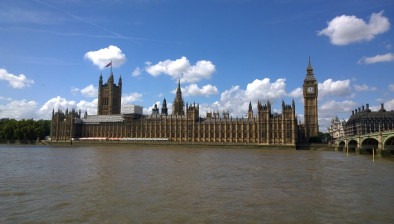Scottish Government seeks assurances over future of job retention scheme

Kate Forbes, finance secretary
Economy secretary Fiona Hyslop and finance secretary Kate Forbes have written to the UK Government to call for assurances that Scottish companies and workers will not be disadvantaged when decisions are made about scaling back the UK-wide Job Retention Scheme.
The letter to Chancellor Rishi Sunak urges the adoption of a ‘measured approach’ and stresses the importance of taking Scotland’s specific economic and public health circumstances into account when decisions about the future of the scheme are made.
The full text of the letter is as follows:
We welcome the important role that the Job Retention Scheme (JRS) is playing in supporting continued employment and income, and the fact that so many people have now started to receive that support directly.
Although the JRS has only recently opened for applications, we note from your media appearances in recent days that you are starting to consider a gradual exit from the Scheme from July.
We welcome your statement that there will not be a “cliff-edge” to this support ending, but we share the concern raised by a large number of stakeholders about the uncertainty this brings.
The JRS is an essential lifeline for employers and employees, alongside the other schemes that have been put in place by both the UK Government and the Scottish Government. We understand that the support will need to be scaled back over time, but it is imperative that is done in a carefully considered way, and reflects the economic priorities of each of the four nations and the different sectors of our economies. The ability to stagger the closure of the scheme may be beneficial in considering how we safely exit the restrictions currently in place.
The First Minister set out our Framework for Decision Making last week. That will guide us as we make decisions about transitioning out of current lockdown arrangements and we have committed to working with the people of Scotland, including businesses, trades unions and others, as we make our judgements.
We have written separately to Alok Sharma in relation to the draft guidance on safer workplaces that the UK Government shared at the weekend. Employers and employees in Scotland are subject to guidance from the Scottish Chief Medical Officer, and this may differ from guidance issued by the UK Government, given the stage at which the health crisis is in Scotland compared to other parts of the UK.
We would like your early assurance that workers in Scotland would not be penalised as a result of any such difference, through any curtailing of the job retention scheme. For example, if the rate of infection is lower in the rest of the UK than in Scotland, and as a result, the Scottish Government advises that workers in Scotland should not return to work on the basis of public health grounds, it is important to provide reassurance that they will continue to be able to access support. As you will be well aware, the Scottish Government, under the terms of the fiscal framework, does not have the fiscal levers that would enable us to operate a similar scheme for Scotland only.
It is also likely to be the case, that as restrictions are eased, this will happen at a different pace across the different sectors of the economy. It will be important for the Job Retention Scheme to reflect any emerging guidance and that support is maintained, in some form, for sectors that remain closed or are only able to partially open.
It will be important, too, to consider wider flexibility in the schemes to adapt to the changing requirements we place on employers. We have previously raised a number of concerns about the operation of the scheme – for example, in relation to pregnancy and maternity, and the ability of people to take on other roles while furloughed. We know that there are some sectors, such as tourism and the oil and gas industry, where ongoing or different support may be required. There is also an opportunity to support the transition to net zero emissions as part of our exit from the restrictions currently in place. These and other emerging issues will require consideration as the scheme continues.
Looking forward, as ’test, trace, isolate’ is implemented across all four nations, it will also be crucial that workers required to isolate as a result of contact tracing are able to secure any necessary financial support so that they are able to self-isolate effectively.
While events are moving quickly, we look forward to early discussion on any proposals you are starting to develop on a measured approach to ending the JRS, and the alignment of that with health guidance.
- Read all of our articles relating to COVID-19 here.








